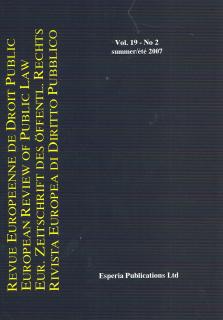
MOVING TOWARDS 'PREVENTIVE WELFARE STATES'?
A REFLEXIVE FORM OF ACTIVATING STATE
XENOPHON CONTIADES
Professor of Public and Social Law at the University of Peloponnese,
Director of the Center for European Constitutional Law (CECL)
The point of this article is to explore the tendency, and not least the perspective, of a new model of welfare state, which would effectively address the new circumstances and social risks of late modernity. This model is the preventive welfare state. The argument follows three steps: In the analytical level, we outline main similarities and differences, fields of convergence and intersecting functions among the liberal state, the welfare state and the preventive state (Section 2). The preventive state, which has been mainly theorized by continental theorists, constitutes a type of state emerging in risk societies. Moreover, contemporary welfare state, under crisis-responding activating reform process, is employing novel forms of intervention in order to address new social hazards, fostering links with the preventive state (Section 3). Finally, we attempt to sketch the ratio of a new state model, which emerges as a result of a hybridization process between welfare and preventive state. This new state model, hereby defined as "preventive welfare state", constitutes an existing reform tendency as well as an alternative vis-à-vis the on-going crisis of the welfare state (Section 4).





















